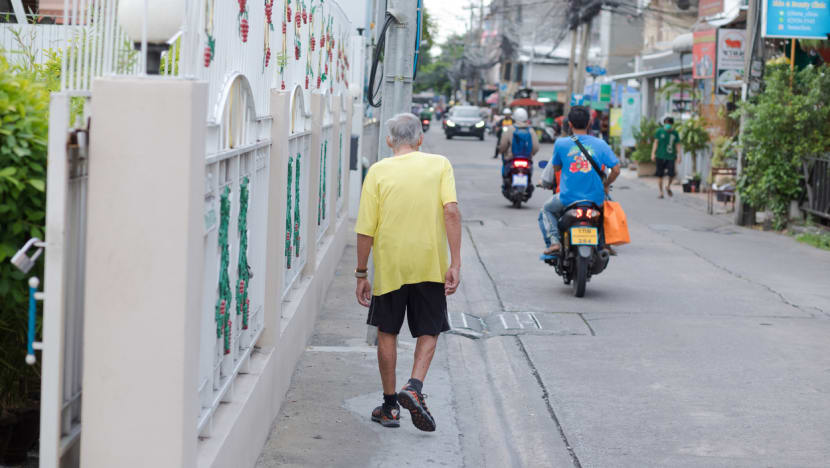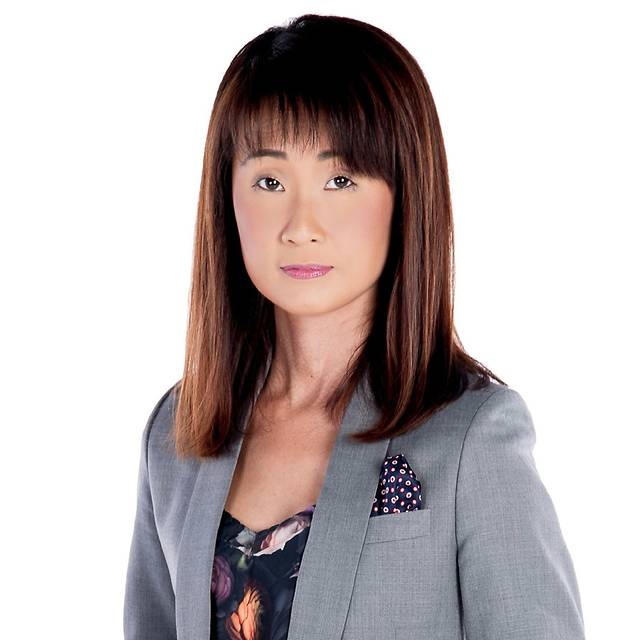In an ageing Thai society, mental health issues plague seniors

An elderly man walks in a residential district in Bangkok's Chatuchak. (Photo: iStock/justhavealook)
BANGKOK: Depression has come to be one of the main illnesses plaguing seniors in a rapidly ageing society in Thailand.
However, conversations about mental health among the aged society remain less prevalent than they need to be.
Geriatrician at Thailand’s Siriraj Hospital Dr Titima Wongviriyawong said that seniors may not know that what constitutes a mental health issue.
"It's an issue of knowledge about mental health problems," she said
But even those who know may refuse to acknowledge mental health problems “because they feel like they’re weak", said Dr Titima, adding that stigma is also a barrier to seniors seeking help.
In the past, there were about seven cases of elderly suicide per 100,000 population but in the past five years, this rate has risen to 11 per 100,000 population, she noted.
With an increasing rate of suicide among the elderly, Dr Titima is afraid unaddressed mental health issues may lead to more suicide cases among this group.
"That's a very high concern. The main factor is due to the financial problems and the mental health problem as well," she said.
She suggested that addressing the problem requires cooperation with multiple segments of government, community and private sectors.
According to the Thai mental health department, about 14 per cent of 12 million senior citizens in the country this year are at risk of suffering from depression, and the problem is expected to worsen.
COST OF MENTAL HEALTH ISSUES
Failure of early detection and treatment of mental health issues may not be just a problem for individuals and their families, doctors said.
Dr Sakarn Charoensakulchai from the Phramongkutklao College of Medicine said such illnesses come at a social and economic expense for the country.
The government has to use funding allocated for public health to deal with the mental health problems, he noted.
He added that given that senior citizens are expected to have the potential to work up to 70 years old in the future, if a larger population of elderly suffer from mental health problems, “that may reduce the ability of the working force of our country”.
Dr Titima zoomed in on the social and economic implications of suicide.
“If elderly (people) can kill themselves because they think that they’re useless, they’re worthless, they have no money ... then other people around them will see that as an example and they may follow that person," she said.
Both Dr Sakarn and Dr Titima said that Thailand lacks the resources and knowledge to tackle mental health problems, and they expect more seniors to face mental health issues as the population ages.
According to the United Nations, in less than 20 years, Thailand will be a “super-aged” society where one in four Thais will be over 65 years old, compared with one in eight now.
FINDING SOLUTIONS
The director-general of the Department of Mental Health, Dr Ampon Benjaponpitak, acknowledged that areas such as welfare and related laws need improvement.
“There are still gaps in our elderly mental health care programme. The important thing is how to access (these elderly). We are working on a progressive plan to approach them in the communities by using volunteers or our staff,” she said.
“We aim to survey and detect the problems early.”
Siriraj Hospital’s Dr Titima suggested that medical practitioners should start paying more attention to the mental health of their elderly patients.
Doctors should incorporate the screening of mental health and social well-being into senior citizens’ regular physical check ups, she said.
“Whenever they see a doctor, (doctors ask) usual questions like ‘your blood pressure is good?’, ‘your blood sugar is good?’ but maybe they haven’t asked ‘how are you feeling today?’,” she said.
Given that there is a lack of manpower in Thailand’s healthcare sector, Dr Ampon hopes to tap into the grassroots to identify and help the elderly with their mental issues.
“A strength of Thai society is community, your neighbours, especially in the rural areas. They can take care of each other. We need to get the community involved in taking care of their own elderly instead of sending them to care centres,” she said.
Watch CNA Leadership Summit live on 10 October 2022 from 1.30pm SGT via cna.asia/leadership-summit.
Where to get help:
National mental health helpline: 1771
Samaritans of Singapore Hotline: 1767
Singapore Association for Mental Health Helpline: 1800 283 7019
You can also find a list of international helplines here. If someone you know is at immediate risk, call 24-hour emergency medical services.















